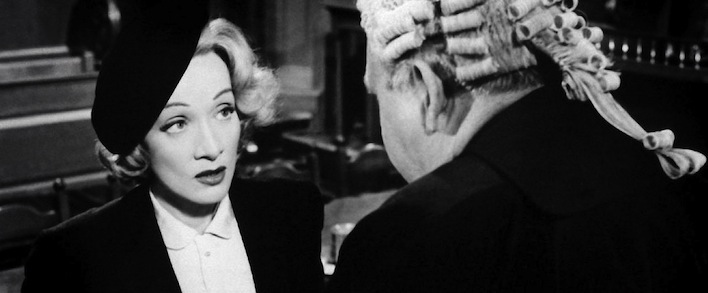Juridical Narrative in Alice’s Worlds: the Dimension of the Possible
Abstract
Aim of this essay is to focus on possible links between Law and Literature, using two novels by Lewis Carroll: Alice in the Wonderland e Through the Looking-Glass and what Alice Found there. Analyzing the legal experiences made by Alice in the two novels I will assume that Law and Literature can be compared as worlds of the possible. In fact both Literature and Law represent a dimension of the possibility. In Through the Looking-Glass and what Alice Found there Alice wants to become Queen and her desire is possible through the law that she experiences as a social practice. On the contrary in Alice in the Wonderland the irrational law that comes from the Hearths Queen is refused by Alice: through this kind of law, prescriptive and sanctioning, it is not possible to realize her wishes. To say that law is possible means to assume that law is a social practice that Literature can narrate, exploring this dimension of possibility. As characters of novel, men can experience a kind of law whose contents are determined not only by rules and sanctions, in a law-positive way, but also by social and cultural representations, instances, opinions, ideas and, actions.Downloads
References
Abignente, Angelo, Legittimazione, discorso, diritto. Il proceduralismo di Jürgen Habermas, Napoli, Editoriale Scientifiche, 2003.
Auerbach, Nina, “Alice and Wonderland: A Curious Child”, Victorian Studies, 17.1 (Sep., 1973): 31-47.
Carroll, Lewis, Alice’s Adventures in Wonderland (1865), trad. it. Alice nel Paese delle Meraviglie, Ed. Milli Graffi, Milano, Garzanti, XV ed., 2007.
Id., Through the Looking-Glass and what Alice Found there (1872), trad. it. Attraverso lo specchio e quel che Alice vi trovò, Ed. Milli Graffi, Milano, Garzanti, XV ed., 2007.
Cavallone, Bruno, Il giudice e la prova nel processo civile, Milano, Cedam, 1991.
Di Donato, Flora, La costruzione giudiziaria del fatto. Il ruolo della narrazione nel “processo”, Milano, Franco Angeli, 2008.
Ferrarese, Maria Rosaria, Il diritto al presente. Globalizzazione e tempo delle istituzioni, Bologna, Il Mulino, 2002.
Ferrari, Vincenzo, Lineamenti di sociologia del diritto. I. Azione giuridica e sistema normativo, Roma-Bari, Laterza, 1997.
Freud Sigmunt, Gesammelte Werke (1899), trad. it. L’intepretazione dei sogni, Ed. Cesare L. Musatti, Torino, Boringhieri, 1980.
Gadamer, Hans-Georg, Wahrheit und Methode (1960), trad. it. Verità e metodo, Ed. Gianni Vattimo, Milano, Bompiani, 1983.
Garapon, Antoine - Salas, Denis (ed.), Imaginer la Loi: le droit dans la littérature, Paris, Éditions Michalon, 2008.
Gay, Peter, Freud. A life for our time (1988), trad. it. Freud. Una vita per i nostri tempi, Ed. Margherita Cerletti Novelletto, Milano, Bompiani, 2000.
Habermas, Jürgen, Zwischen Naturalismus und Religion. Philosophische Aufsätze (2005), trad. it. La condizione intersoggettiva, Ed. M. Carpitella, Roma-Bari, Laterza, 2007.
Kelsen, Hans, Reine Rechtslehre. Einleitung in die rechtswissenschaftliche Problematik (1934), trad. it. Lineamenti di dottrina pura del diritto, Ed. Renato Treves, Torino, Einaudi, 2000.
MacCormick, Neil, Practical Reason in Law and Morality, New York, Oxford University Press, 2008.
Minda, Gary, Postmodern Legal Movements. Law and Jurisprudence at Century’s End (1995), trad. it. Teorie postmoderne del diritto, Ed. Cristina Colli, Bologna, Il Mulino, 2001.
Mittica, Maria Paola (ed.), Diritto e narrazioni. Atti del secondo convegno nazionale della Società italiana di Diritto e Letteratura, Bologna, 3-4 giugno 2010, Milano, Ledizioni, 2011.
Ost, François - van de Kerchove Michel, “De la pyramide au réseau? Vers un nouveau mode de production du droit?”, Revue interdisciplinaire d’études juridiques, 44 (2000): 1 - 82.
Pastore, Baldassare, “Soft law, gradi di normatività, teoria delle fonti”, Materiali per una storia della cultura giuridica, 17.1 (2003): 5-16.
Rackin, Donald, “Alice’s Journey to the End of Night”, PMLA, 81.5 (October 1966): 313-326.
Sarat, Austin - Kearns, Thomas (eds.), The Rethoric of Law, Ann Arbor, University of Michigan Press, 1996.
Scamardella, Francesca, “Ragionando sul diritto: Alice e il gioco degli specchi”, ISLL, Online Review of the Italian Society for Law and Literature, papers, essays (2009), http://www.lawandliterature.org/area/documenti/Scamardella%20-%20Ragionando%20sul%20diritto%20-%20Alice.pdf, online (ultimo accesso 09/04/2009).
Id., Il diritto attraverso lo specchio. Esercizi filosofici sulla riflessività giuridica, Napoli, Editoriale Scientifica, 2011.
Shakespeare, William, The Tempest (1611), trad. it. La tempesta, Ed. Alfredo Orbetello e Anna Luisa Zazo, Milano, Mondadori, 1991.
Teubner, Gunther, La cultura del diritto nell’epoca della globalizzazione. L’emergere delle costituzioni civili, Roma, Armando, 2005.
Viola, Francesco - Zaccaria, Giuseppe, Diritto e interpretazione. Lineamenti di teoria ermeneutica del diritto, Roma-Bari, Laterza, 1999.
Viola, Francesco, Identità e comunità: il senso morale della politica, Milano, Vita e pensiero, 1999.
White, James Boyd, Living Speech: Resisting the Empire of Force, Princeton, Princeton University Press, 2006.
Id., The Legal Imagination, Chicago and London, The University of Chicago Press, 1973.
Id., When Words Lose Their Meaning: Constitutions and Reconstitutions of Language, Character, and Community, Chicago and London, The University of Chicago Press, 1984.
Copyright Notice
You are free to copy, distribute and transmit the work, and to adapt the work. You must attribute the work in the manner specified by the author or licensor (but not in any way that suggests that they endorse you or your use of the work).









